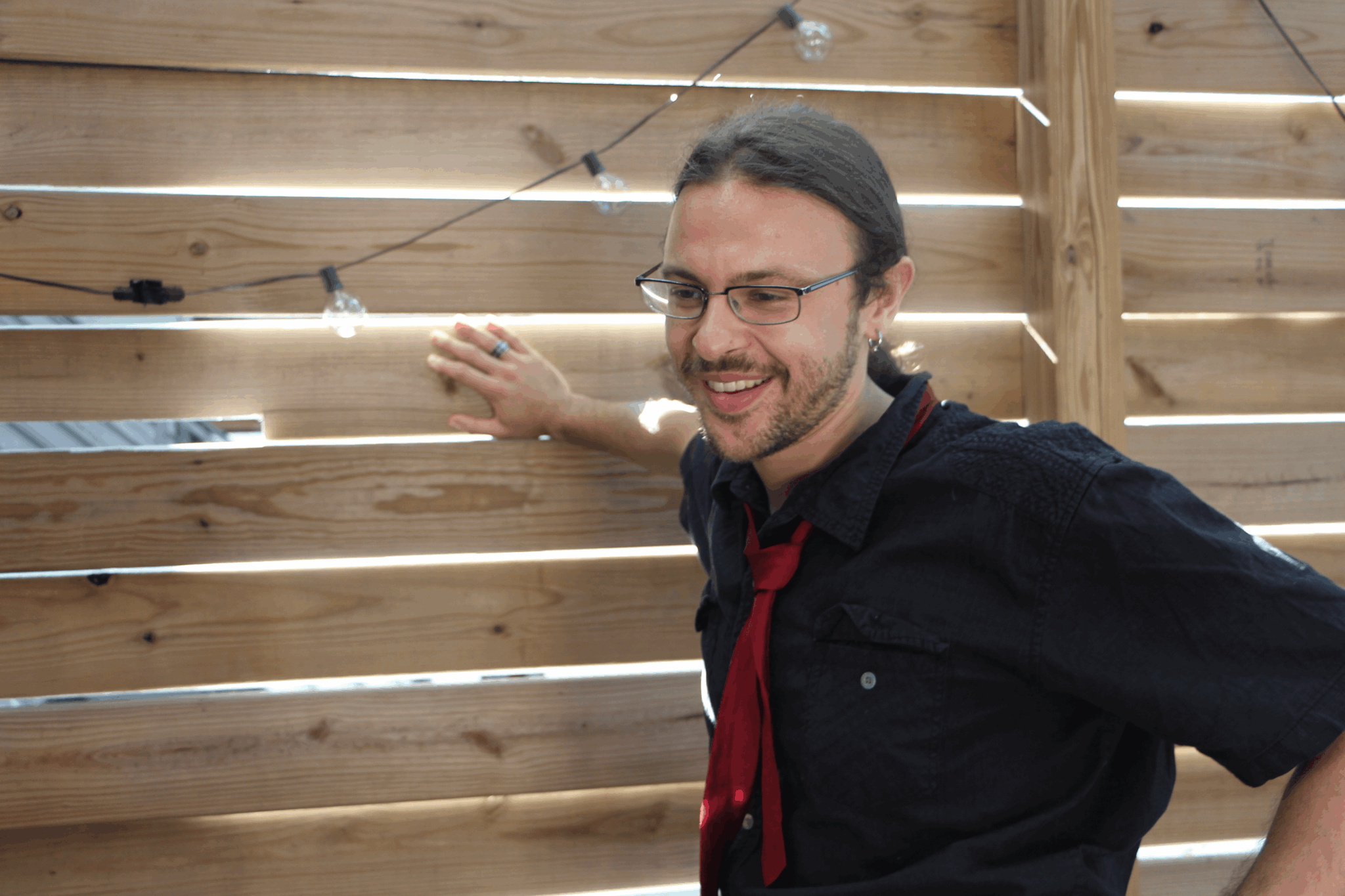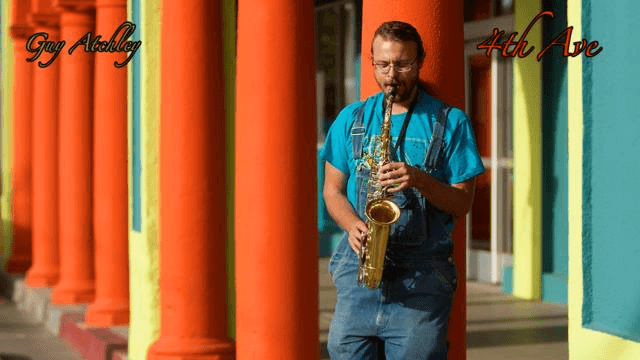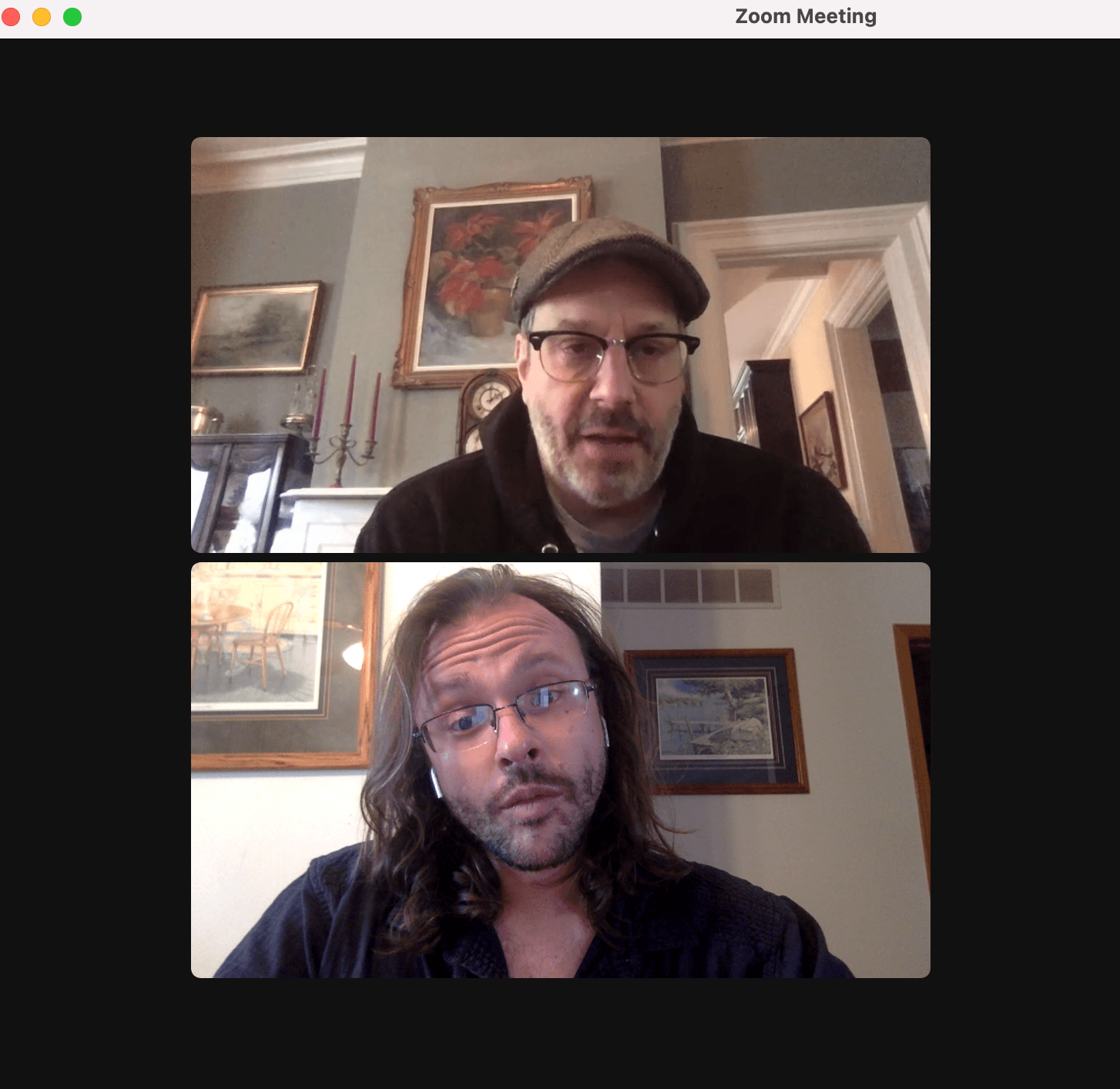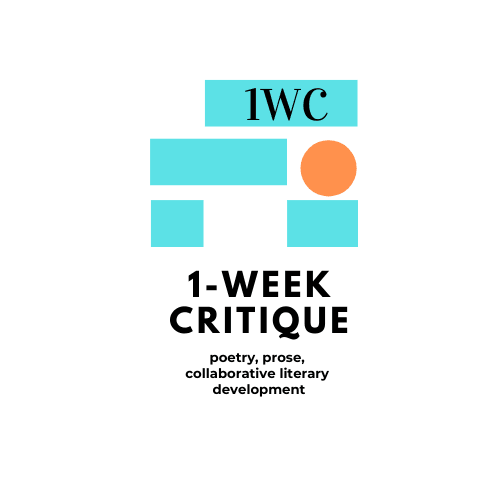Today we’d like to introduce you to Adam Al-sirgany
Hi Adam, so excited to have you with us today. What can you tell us about your story?
I never feel particularly coherent sharing my “story.” That ought to be embarrassing to say as someone who helps others shape their own narratives, their “brands” every day. So maybe let me get to this off the bat: I don’t really know how to frame myself with any simplicity.
And that’s what I’ve got to offer—as a writer, as an editor, as a friend. There aint an elevator pitch, not really. Probably isn’t for you either. And there’s a virtue to accepting that slow-and-messy. Life isn’t a reasonable endeavor; trying to make it seem like it is turns the best of us into hucksters. The reason for that, I’d suspect, is rooted in the truth that the present is always just where a bundle of our stories get piled together.
Here’s one bundle: I was born and raised in the Lower Driftless, at the relative bottom of a little patch of the Midwest the last ice age forgot to flatten. My mother was an educator, a voracious reader of newspapers and mysteries, and a self-described “women’s libber.” My father was a charmingly erudite and brilliant jewelry designer from Cairo who unfortunately thought of himself as a salesman, which he wasn’t, rather than as an artist, which he was. My childhood was spent mostly in the company of my maternal grandparents, some good ol’ folks who farmed hogs. There’s the closest thing to your short form. I grew up on a hog farm, the son of a book lover and an Arab man who was proud to be in the lineage of the Prophet, peace be upon him. There isn’t math for that, so I took up reading and telling stories.
Would you say it’s been a smooth road, and if not what are some of the biggest challenges you’ve faced along the way?
I don’t know that I relate to this particular metaphor. My trip has been less a road than a river. Sometimes the banks change, sometimes you move toward the sea quicker. The path isn’t human made; the experience of being on the water, in the water, is a sentient experience.
Not trying to be coy, that’s more where I’m at than where I’ve always been. The truth is some of the times I’ve most thought of as struggles have been real soft water. And in retrospect I know that. In retrospect, I know so much more about myself because I have sat with why so many good times felt so bad.
Some of that is that I am chemically pretty inclined to depression and anxiety. I didn’t choose that necessarily. When I was young, I’d sit and watch my father chain smoke while he carved animal heads into jewelry wax, listening to—yeah, classical music—but it was often Tchaikovsky’s 1812 on the top volume he could crank out of his Bose. The manic energy was real.
Mental health is a relative thing. Dad loved Beethoven and Bach and Debussy. He was an expat whose expectations of America were unrealistic and whose memories of Egypt were often grim. He was also a man who was constantly in a struggle to get serotonin out of his bloodstream and into his brain.
I get that. I constantly have to tell new friends and strangers that I’m okay. I’m not pacing because I’m mad or anxious: I pace almost constantly to make sure I’m not mad or anxious. My art, the part of getting the words on the page, is mostly seated art. It often feels like I’m running against the clock of my own anxiety when I’m working. Can I read, can I write, can I edit before a million intrusive thoughts start chasing each other around my cerebellum?
That struggle is daily. But as I get older I’ve learned to manage myself better. I’ve learned to plan better. I’ve learned to forgive my own foibles and work with that excess energy rather than wrestle it and myself into depressions.
Thanks – so what else should our readers know about your work and what you’re currently focused on?
Man, I once speculated to a friend that I was possibly the most average person on earth. I don’t know that anything I ever did or said or thought or worked on was in and of itself more remarkable than anything my peers have done or said or thought. I guess I know I know nothing, you know? I know that the ride isn’t about the outcome, it’s about the ride. And I keep buying the ticket, keep buying the ticket, keep buying the ticket. I never wanted to be still. Which I guess in relation to my last answer sounds nervous or fidgety or whatever, but why can’t your weird also be your blessing?
I did my thing like lots of writers, I just didn’t chase all the things other writers of my generation did in the same way. I’m proud of that: that I followed my soul over pragmatism, nearly every time.
Put myself through grad school in some unusual ways, and the usual ones—I was a janitor, a bartender, a street musician, the list goes on. Nobody and everybody’d told me an MFA wasn’t good for much except making friends who are also broke artists. What a miracle thing that is, to have your adult foundation in too many books and in a terrifying,
quixotic hope something positive is already happening. No joke. If you get resolute set to that, you’ve already seen the worst, and your delusions’ll carry you some length. Nervous doesn’t touch you in the same ways it does normal people. You can ride straight ahead toward your own unimaginably lovely windmills, even if you’re weeping on your nag.
Anyway, I hit the job market with all this blue collar odds ‘n’ ends experience and no plan for making Brooklyn rent. It was 2016 and the elections that year had made a lot of folks certain kinds of squirrelly. I fell into writing for Manhattan real estate types, marketing and vanity projects mostly. God, I was bad at it. I didn’t care about how any of it looked in a pitch deck. I didn’t know what a pitch deck was. I had this sincere naivety that empowered me to listen to a real estate billionaire tell me how he’d reshaped a major neighborhood I’d have felt awkward walking through, and instead of being appropriately annoyed or impressed, I’d ask, blank-faced but curious, Why did you do that?
A few of those folks thought I had ice in my veins, which is probably how I managed a half a decade in that business. I didn’t—have the ice that is. By sheer luck, I’d cultivated something akin to curiosity. I grew up with very egalitarian grandparents who despised puttin on airs. I’m generally, legitimately happy for folks when they accomplish their intentions, but the truth is I can listen to a person talk for hours about yoga or baking, fishin or fixin tractors as easily as I can a man explain his Olympic training or how he made a mint owning banks. I’ve been gifted the ability to be earnestly happy you’re happy about your perceived achievement and not relate to it as achievement—or necessarily a problem either. So when you’re done telling me about your skyscraper, I’ll still ask you, But what’d that do to the people, to their land? I’m probably not about to give you an earful about your sins.
I’m not trying to make a political statement about the rich there. Rather I’m saying I briefly worked with a few ultra rich people, and because I treated them like anybody at all, they gave me some insight into how they viewed the world’s workings: the inevitability of capitalism, their own prosocial roles in overpopulated cities with changing expectations of what the good life is, etc. But what I learned most from bank owners and real estate aficionados—well, it was a lot about how money moves, and about what the good life was to me.
My good life was and is to be inundated with the possibilities of art. I got to thinking a lot about navigating the necessary liminal spaces between artists and art and the market (whatever that is). This is all hyper-simplified, but I was recognizing the need both for the art of literature to be independent, unhampered and thriving, and for people who love the art to brave the quagmire of business to help the art reach the hands and eyes and ears of readers. Comprehending that challenge had just about taken me off the deep end when I caught a break. Two contrasting and collaborative breaks, really.
First, my buddy Matthew Scmidt convinced Ingrid Wenzler and I to go into a nonprofit endeavor, 1-Week Critique, or 1WC, where we would provide accessible editorial resources to writers. We built 1WC on the principle that writing could benefit everyone, so we wanted to provide tools for writers and teachers that would be relevant regardless of experience or how someone came to the literary arts. We provide weekly teen workshops at the Iowa City Public Library, an online interview series comparing early drafts and finished work by accomplished writers, lesson plans, and editorial feedback on single pieces in a week or less, among other projects. You can dig what we do at 1weekcritique.com.
Second, somewhere around the time 1WC was getting off the ground, around my 30th birthday, my friend Monica Prince introduced me to Andrew Gifford the founder of the spectacular indie press SFWP. Andrew was about to need an acquisitions and developmental editor, and the rest, as they say is history. At SFWP, we publish fiction and creative nonfiction of every genre, as well as a bit of poetry. We maintain an online lit journal and run an annual internationally-recognized Awards Program. All of our titles are distributed globally by the Independent Publishers Group, IPG, and we aggressively pursue subrights, working closely with the Susan Schulman Literary Agency, who has helped us sell audio, translation, and film/TV/streaming rights.
In other words, through 1WC, I’ve gotten to help foster writers in the tender spaces of creation, while at SFWP, I’ve helped writers navigate the dizzying logistics of marketing and publication. And that’s a blessing of where some of my stories come together, to get to foster artwork into the world so often and so far along the line.
I still write, daily in fact. And that’s a blessing of another kind, a slightly different bundle of tales. My story collection MORE HELL is coming out next year on the non pareil Whisk(e)y Tit books. Their founder Miette Gillette is the kind of art-for-art-sake, mad genius I love to be around most. She publishes the unpublishable, and so well, and is someone I hope to continue learning with as my own work continues to lose and gain sticks.
MORE HELL is a collection of sometimes comic stories about the sadness of addiction and sex in a small Midwestern town. I’d love it if you read it, but my book is only a small part of a larger mission: to help writers you’d never know otherwise get their work in your hands.
What was your favorite childhood memory?
Man, I had a beautiful childhood. It’s hard to pin a single memory.
I do remember raking leaves this one time. I grew up in the Driftless, as I said. Our farm was uphill from most of the nearby town. You can look down into the West. The skies up there are neon on summer evenings, and sometimes into fall.
We used to mow nine acres of lawn, including the ditches along the fields. Appearances, and keeping allergies down and all that, I suppose, and the American aesthetics of grass. And my grandmother, she grew up in the Depression. She would have us rake the grass every couple mowings, at least in the front yards, you know. And I remember this one day, we’d started mowing late and run four mowers and the weed whip into evening. Maybe it was going to rain, I can’t tell you why we stayed out ranking until the sun was setting. But I looked up and saw this sky and I said out loud, Life is so good.
My family used to give me a hard time about that. Pollyanna madness. But to this day, when I think about that—the cut grass and the late summer air and the good burn in my shoulders from the raking and the look of that sky—it’s this memory of a really pure thing, that first time you can distinguish how lucky you are and speak it, and it’s true.
Contact Info:
- Website: https://www.adamalsirgany.com
- Instagram: adam_al_sirgany
- Facebook: https://www.facebook.com/adam.sirgany
- Twitter: @adam_al_sirgany
- Other: For 1WC https://www.1weekcritique.com IG: 1weekcritique Twitter: @1WeekCritique Youtube: https://www.youtube.com/@1weekcritique FOR SFWP https://www.sfwp.com IG: santafewritersproject Twitter: @SFWP Youtube: https://www.youtube.com/@sfwp98 Designing Context-Rich Learning by Extending Reality https://www.igi-global.com/book/designing-context-rich-learning-extending/309084 For Whisk(e)y Tit Books: https://whiskeytit.com






Image Credits
The images here were photographed or created by Ingrid Wenzler, Guy Atchley, Adam Al-Sirgany, and Matthew K. Schmidt


